Former National Chief Del Riley denounces “blatant violation” of Aboriginal and Treaty Rights.
By Dispensing Freedom
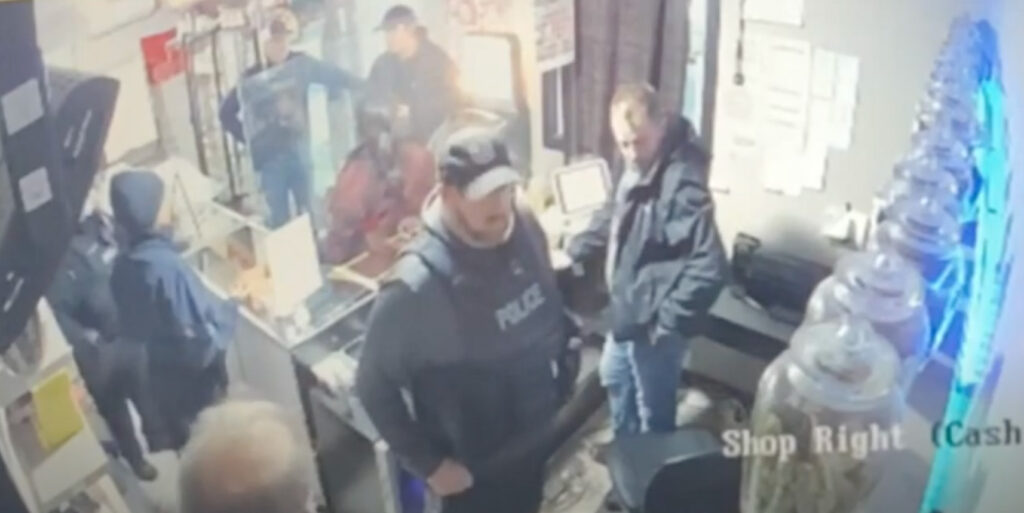
MEMBERTOU FIRST NATION – In December of last year, the Cape Breton Regional Police Service carried out multiple raids in Membertou First Nation in violation of the constitutionally protected Aboriginal and Treaty Rights of several Mi’kmaq men. On December 13th, 2022 the municipal police force entered into federal “lands reserved for Indians” and raided the premises of Sully’s Trading Post and Belly Busters Pizza & Donair to enforce provincial laws.
The owners of the two shops have been charged under Section 39 of the Provincial Revenue Act, SNS 1995-96, c 17 for possessing tobacco “on which tax has not been paid” or which did not bear “a prescribed mark” or which was not purchased with a “valid retail vendor’s permit.”
According to William Paul, the owner of Sully’s Trading post, the police absconded with approximately $40,000 of tobacco and vapes from his store. They took his tobacco products but left the cannabis on his shelf.
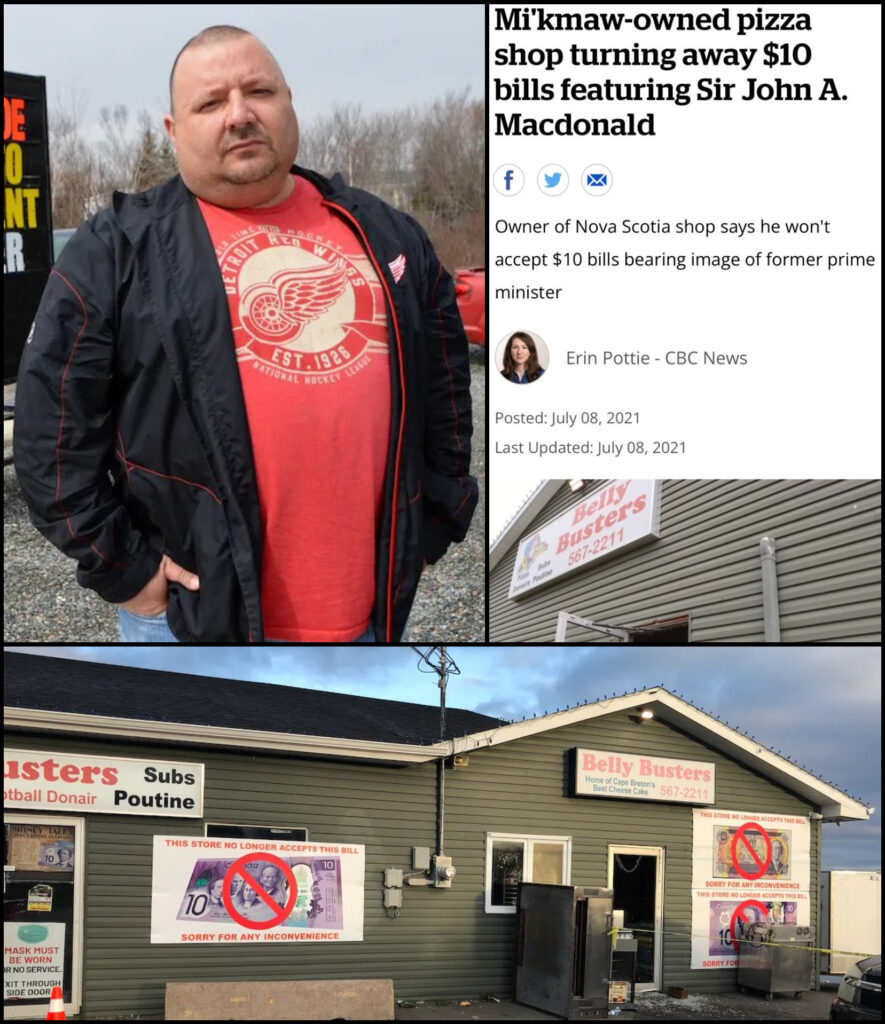
Paul MacDonald, the owner of Belly Busters and an elected Councillor of the Membertou Band Council, said the masked and anonymous Cape Breton police who invaded his store refused to identify themselves or to make an inventory or a count of the tobacco products they took. The officers left no paperwork, but he estimated his losses at over $100,000. According to MacDonald, the amount that was stolen by police was “enough to pretty much almost knock me out of business, it’s like starting all over again 15 years later. I’m behind on every bill because they stole my revenue,” he said.
Raids a blow to local independent businessmen
The timing of the raids coming as they did just before Christmas, was a tremendous blow to the men and their families. After the initial feelings of depression passed, Paul MacDonald said he was reminded of all the battles that his grandmother had to fight. “Growing up, I was always told by my mom and others that even to repossess a vehicle or something, they had to get permission to come on the reserve. And now they’re just walking into my store and stealing all my tobacco like they did to my grandmother Viola Paul in the eighties.”
Paul noted that his grandmother “had a little arcade, and the RCMP would come in and just sweep all the tobacco products off the shelf into garbage bags and just walk out. She never got charged and she never got her tobacco back. They just said it was illegal tobacco and took it. I thought those days were over until it happened to us the other day.”
The raids also provoked feelings of outrage in the men. William Paul is aware that Mohawk tobacco is being sold in many other local smoke shops and cannabis dispensaries. So why was his shop being targeted in particular? And what is a municipal police force doing enforcing provincial laws on federal lands reserved for Indians in violation of constitutional protections for Aboriginal and Treaty Rights?

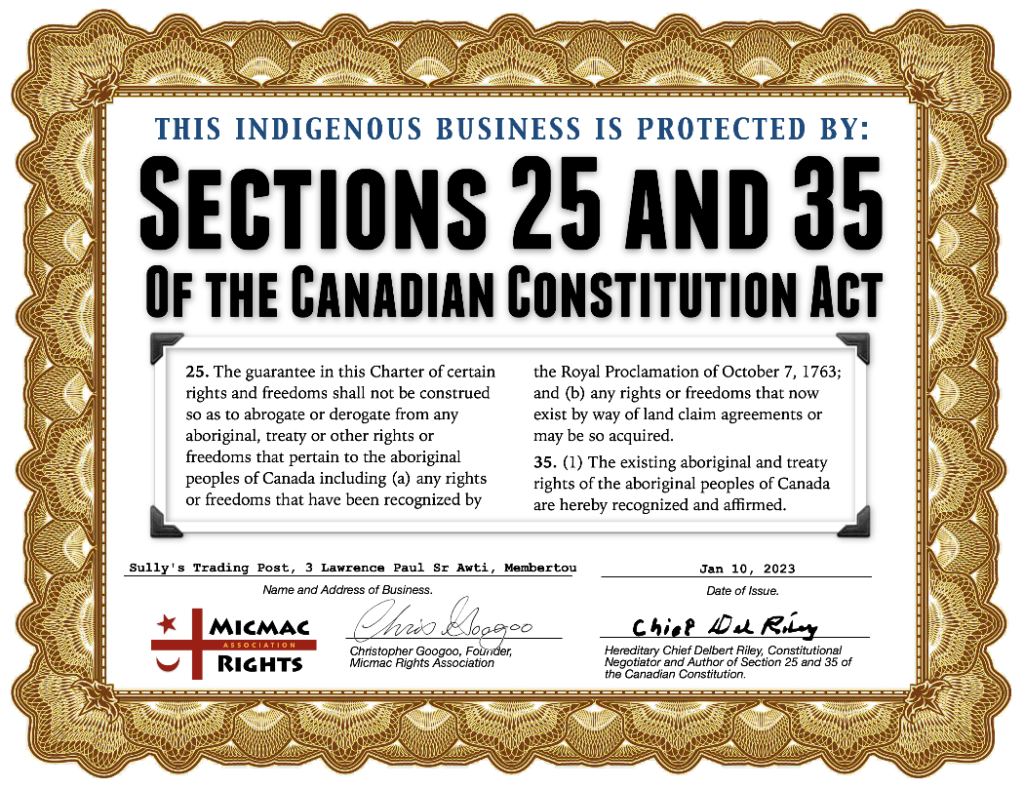
Making a choice to stand and fight
In the wake of the raids, William Paul approached Chris Googoo and Albert Marshall, two Mi’kmaq men who have recently stood up for their rights and publicly opposed police raids in their communities. Supporters of Googoo held a rally outside of the Dartmouth Courthouse in October of 2022 after his shop in Cole Harbour was raided by the RCMP for selling “Mohawk tobacco.” The raids appear to have been directed by a faction of the Millbrook Band Council which is opposed to local entrepreneurship in the community.
Marshall, from the nearby Mi’kmaw community of Eskasoni, had been raided by the RCMP two years previously, but all charges were dropped against him after he raised a constitutional question with the court. Then, months after the charges were dropped, the RCMP sent Marshall a letter demanding that he provide ‘government documentation’ that authorized him to be a seller of cannabis.
Marshall decided to retain the services of former National Chief Delbert Riley, the Indigenous leader responsible for negotiating the entrenchment of Aboriginal and treaty rights in Sections 25 and 35 of the Canadian Constitution, to respond to the RCMP’s request for information.
Chief Riley is arguably one of the most knowledgeable experts on the meaning and interpretation of the Canadian Constitution as it pertains to Aboriginal and Treaty Rights, and he is one of the few Indigenous leaders involved in the constitutional negotiations of the 1980s who is still alive today. Since 2019, Riley has been notable for his defense of the rights of Indigenous entrepreneurs in the cannabis industry, and he has been retained as an expert witness in half a dozen different Indigenous constitutional challenges to Canada’s Cannabis Act.
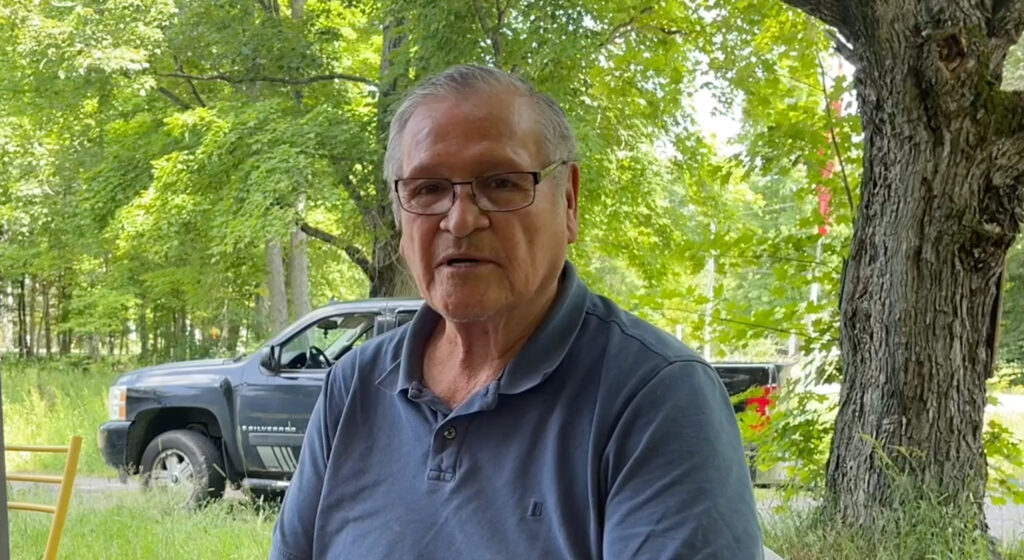
On December 16th, Chief Riley wrote a letter to Sergeant Phil Christopher, the Detachment Commander of the RCMP Eskasoni Detachment on Marshall’s behalf. The letter stated that the “government documentation” for Mr. Marshall’s rights and authority to run an Indigenous cannabis dispensary were to be found in the Royal Proclamation of 1763, in Section 25 and 35 of the Canadian Constitution, and in the Peace and Friendship treaties between the Mi’kmaw and the Crown.
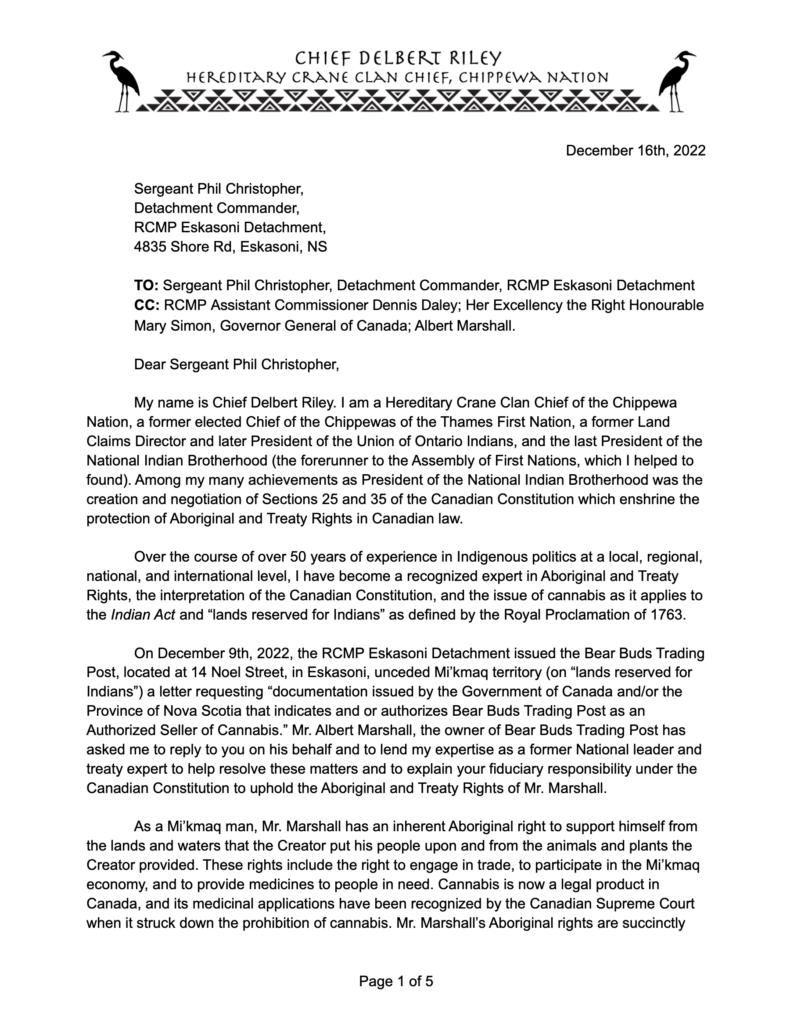
Chief Riley also cited the Nova Scotia Supreme Court’s Appeal Division in R. v. Isaac, 1975 CanLII 2416 (NS CA) which held that the Royal Proclamation of 1763 “applied to Nova Scotia including Cape Breton” and determined that “No Nova Scotia treaty has been found whereby Indians ceded land to the Crown, whereby their rights on any land were specifically extinguished, or whereby they agreed to accept and retire to specified reserves.”
After reading Chief Riley’s letter to Sergeant Phil Christopher which explained Albert Marshall’s constitutionally protected Aboriginal and Treaty Rights, the Membertou businessmen asked Chief Riley for support in their cause.
Chief Riley intervenes with Cape Breton Regional Police Service
On January 11th, 2023 Chief Riley sent a letter to Police Chief Robert Walsh and Sergeant Barry Gordon of the Cape Breton Regional Police Service on behalf of William Paul and Paul MacDonald. The letter explained the nature of the men’s Aboriginal and Treaty Rights and explained how the Indian Act, the Canadian Constitution, and the United Nations Declaration of the Rights of Indigenous Peoples applied in this matter.
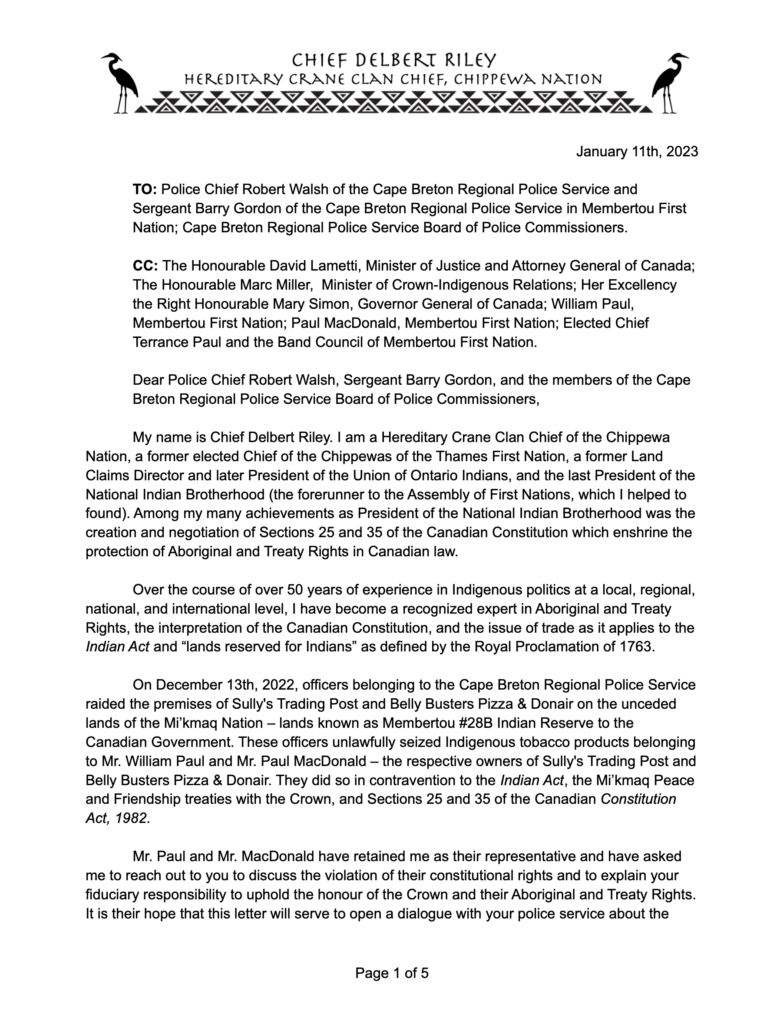
Addressing the violations of the Indian Act by the Cape Breton police, Chief Riley stated that:
“In seizing Mr. Paul and Mr. MacDonald’s tobacco products, your municipal police service violated Sections 87, 88, and 89 of the Indian Act – a Federal law created in accordance with Section 91(24) of the British North America Act. Section 87 of the Indian Act protects the interest of Indians on reserve lands and the personal property of Indians situated on reserve. Section 87(2) of the Indian Act states that “No Indian or band is subject to taxation in respect of the ownership, occupation, possession or use of any property mentioned in paragraph (1)(a) or (b) or is otherwise subject to taxation in respect of any such property.” The tobacco that the Cape Breton Regional Police Service seized from Mr. Paul and Mr. MacDonald was their personal property and it was situated on unceded lands reserved for Indians. It is thus not subject to taxation or to seizure from your police force.”
Chief Riley noted that other sections of the Indian Act applied to this case and that they too trumped Provincial laws.
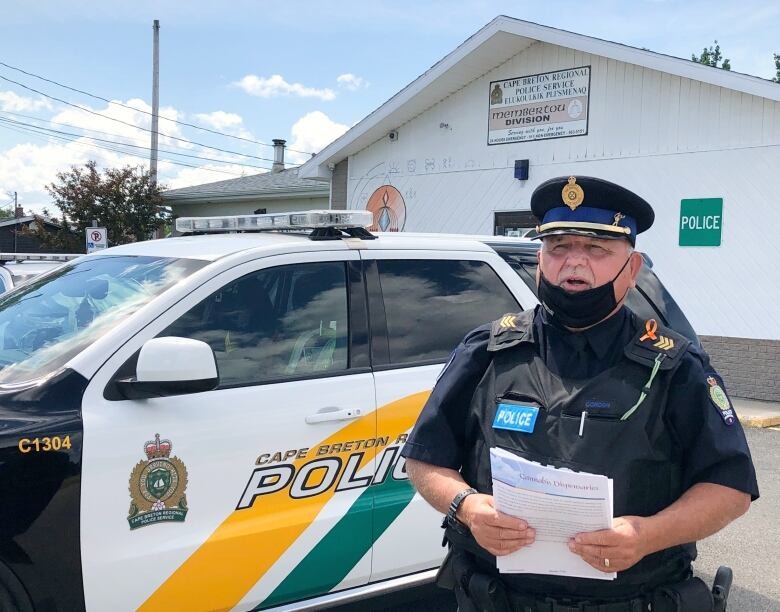
“Section 88 of the Indian Act states that Provincial Laws of general application apply to Indians “except to the extent that those laws are inconsistent with this [Indian] Act” or “the terms of any treaty and any other Act of Parliament.” The actions of the Cape Breton Regional Police Service in seizing the tobacco of Mr. Paul and Mr. MacDonald violate both the terms of Mi’kmaq treaties with the Crown and the Indian Act and are thus unlawful and a violation of your fiduciary responsibility to uphold the honour of the Crown….
Section 89 of the Indian Act states that “the real and personal property of an Indian or a band situated on a reserve is not subject to charge, pledge, mortgage, attachment, levy, seizure, distress or execution in favour or at the instance of any person other than an Indian or a band.” In seizing Mr. Paul and Mr. MacDonald’s personal property your police service violated this section of the Indian Act as well.
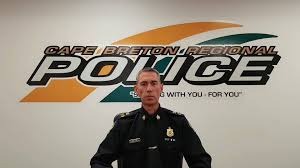
Chief Riley concluded his letter with an offer to meet with the Police Chief and his Sergeant to help educate their department about their fiduciary responsibilities to Indians and their constitutional requirement to uphold Section 25 and 35 Aboriginal and Treaty Rights. Chief Riley also cc’d his letter to the Honourable David Lametti, Minister of Justice and Attorney General of Canada as well as to the Honourable Marc Miller, Minister of Crown-Indigenous Relations and to King Charles’ direct representative, Her Excellency the Right Honourable Mary Simon, Governor General of Canada.
Speaking to William Paul and Paul MacDonald, Chief Riley stressed that the key issue is that “The province has absolutely no authority on your territory. You are a nation. They are an administrative unit of the federal government. They have no authority over you and it’s as simple as that. The province has its own authorities as a regional kind of government, but they can’t apply their laws and regulations to you and your nation.”
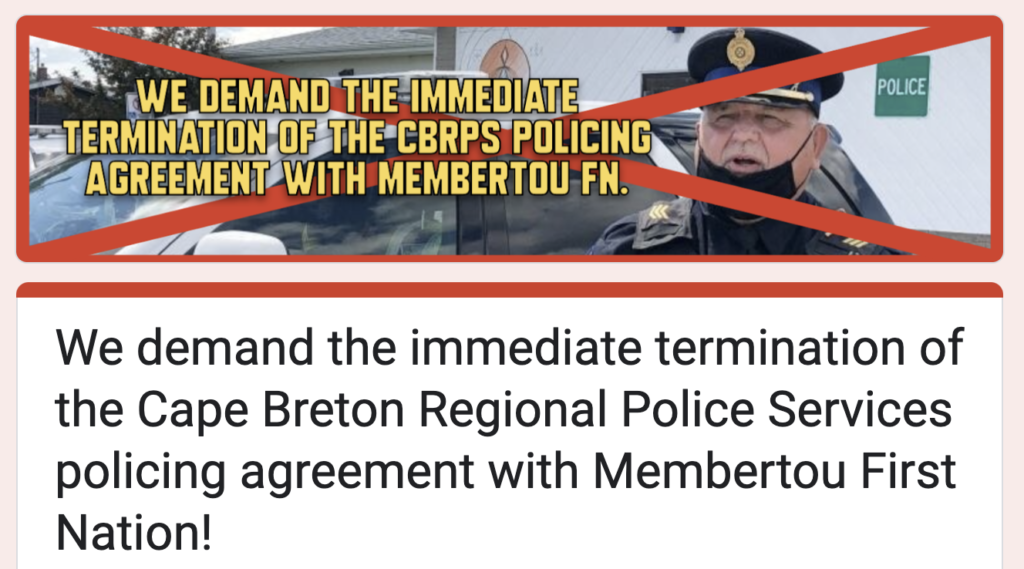
Protest and speaking events to occur on January 27th
The Micmac Rights Association has announced that it will be holding a protest in support of the raided Membertou businessmen at 4pm outside of the Cape Breton Regional Police Service offices at 865 Grand Lake Rd, Grand Lake Road, in Sydney. Former National Chief Del Riley and Micmac Rights Association founder Chris Googoo will be speaking at the event.
After the protest, a community feast and public meeting will be held featuring Chief Del Riley. Riley will have copies of his recently released autobiography The Last President available for sale at the event.
A petition is also circulating in support of William Paul and Paul MacDonald. It reads as follows:
“Whereas, police officers belonging to the Cape Breton Regional Police Service (CBRPS) raided the premises of Sully’s Trading Post and Belly Busters Pizza & Donair on the unceded Mi’kmaw lands of Membertou First Nation on December 13th, 2022 and unlawfully seized Indigenous tobacco products belonging to Mr. William Paul and Mr. Paul MacDonald, members of the Membertou First Nation;
And Whereas, all members of Membertou First Nation have a constitutionally protected Aboriginal and Treaty Right to trade in tobacco on unceded Mi’kmaw lands;
And Whereas, this raid and seizure of tobacco products by the CBRPS was carried out in violation of sections 87, 88, and 89 of the Indian Act, which is a Federal law which protects Indians from taxation, provincial laws, and the seizure and removal of their property from lands reserved for Indians;
We the undersigned, demand of Membertou First Nation Chief and Council that the CBRPS’s policing agreement with Membertou First Nation be immediately terminated and not resumed until such a time as (1) the seized tobacco products belonging to Mr. William Paul and Mr. Paul MacDonald have been retuned to them by the CBRPS and (2) the leadership of the CBRPS has undergone cultural competency training to learn about Mi’kmaq Aboriginal and Treaty Rights and their protection by Section 25 and 35 of the Canadian Constitution and (3) publicly apologized to Mr. Paul and Mr. MacDonald for their actions.”
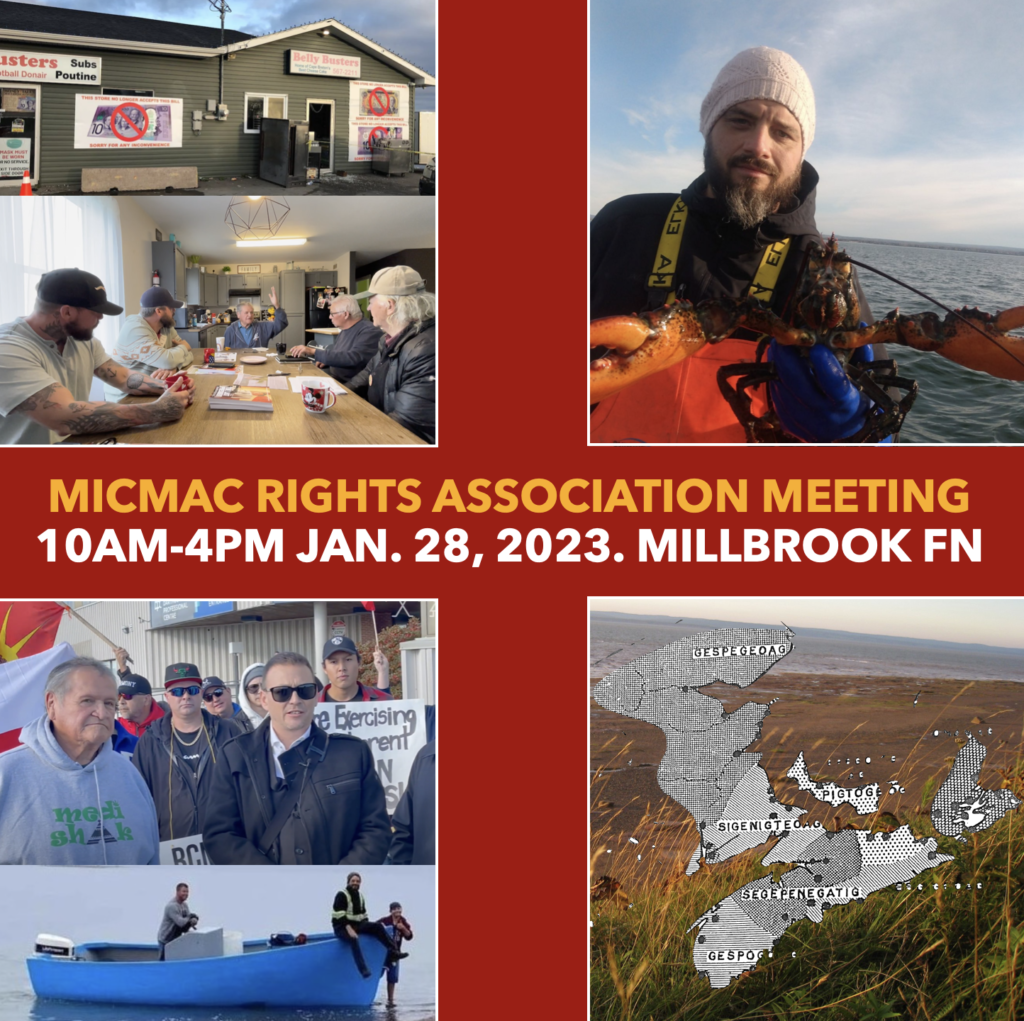
On January 28th, the Micmac Rights Association will be holding a biannual meeting open to all members in Millbrook First Nation. More information about the meeting and the MCA is available at www.micmacrights.com.
Elected Band Council Chief Terrance Paul of Membertou First Nation and Police Chief Robert Walsh of the Cape Breton Regional Police Service were asked for comment, but have not yet replied to the request for comment.

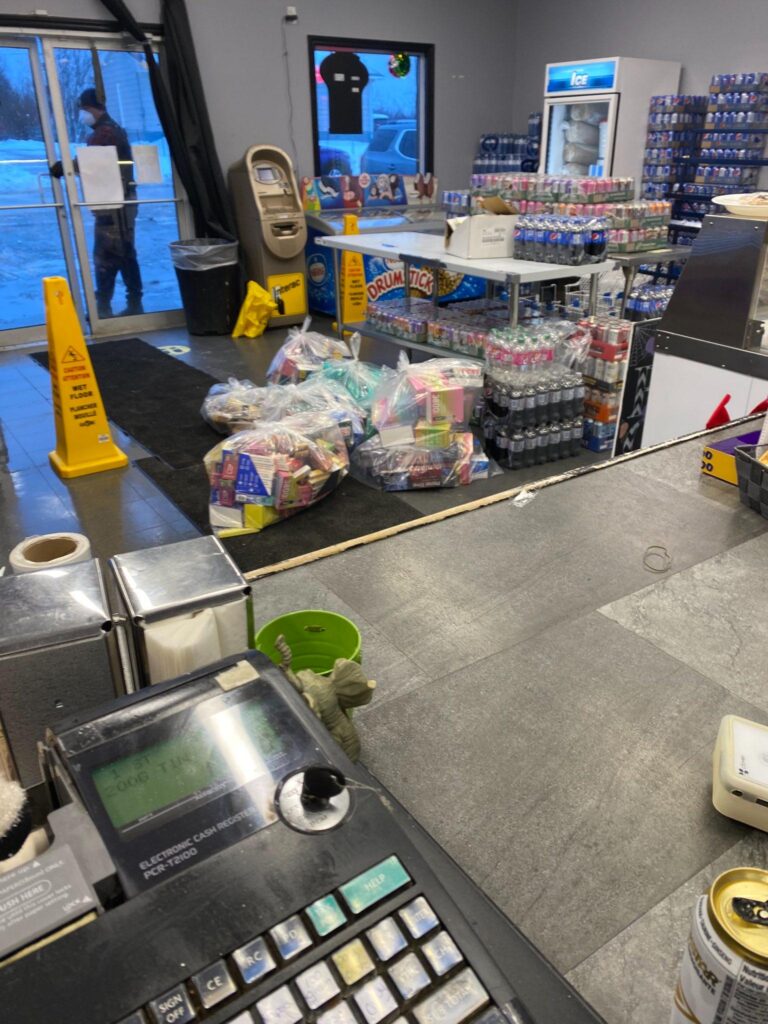
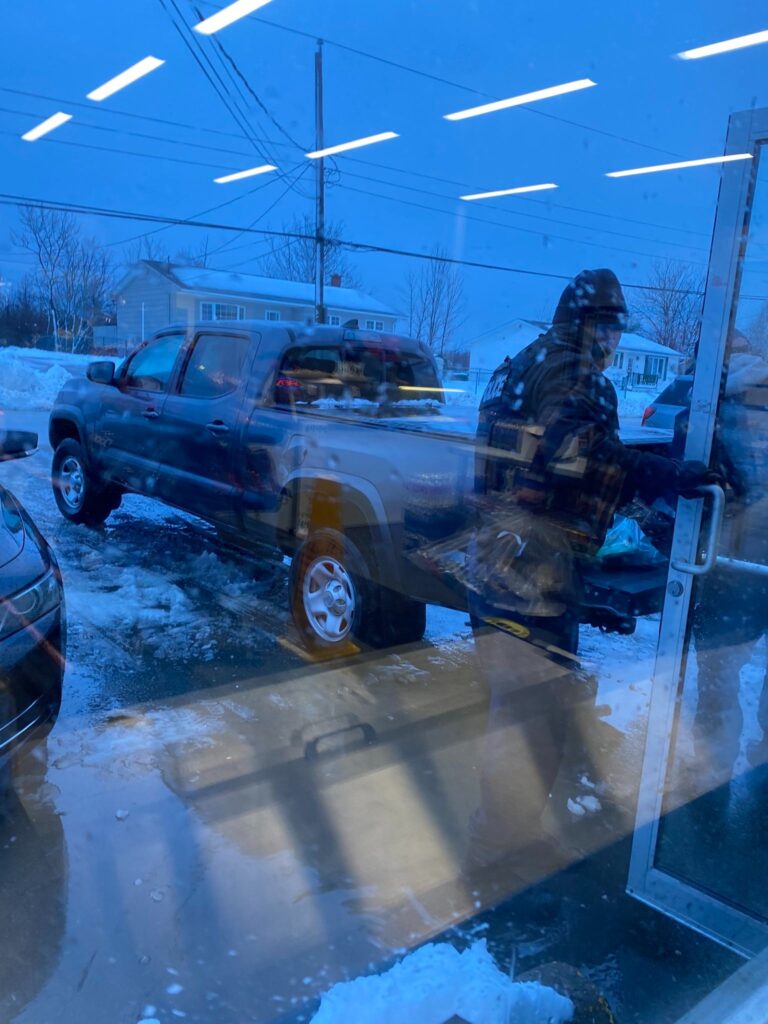
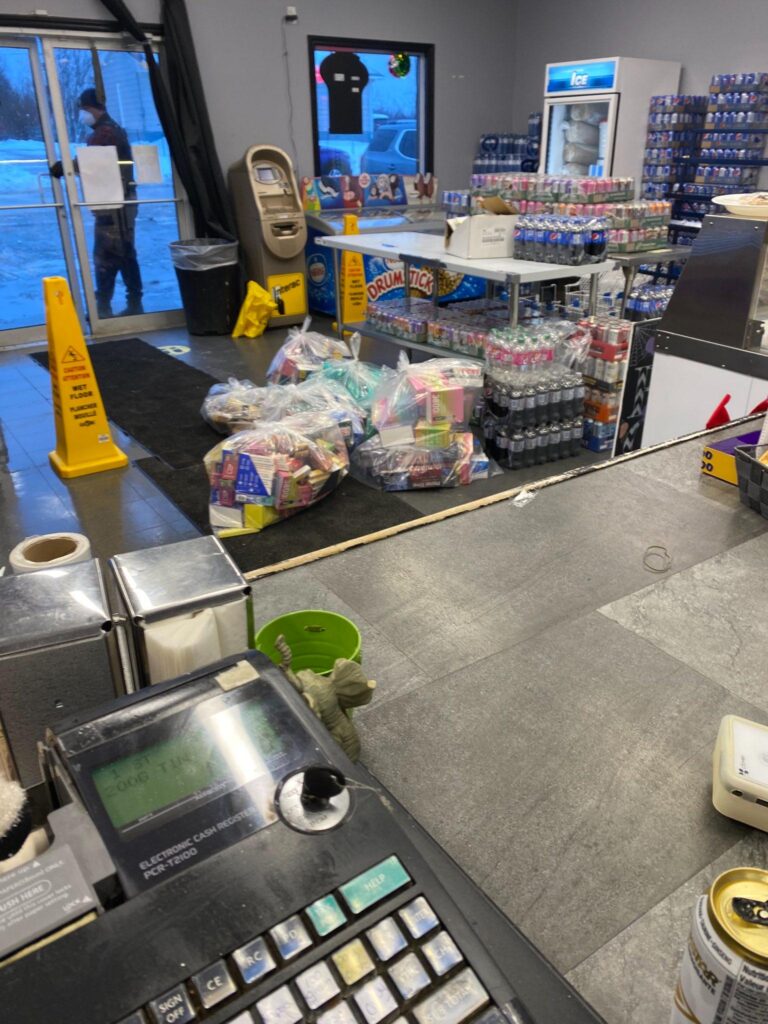
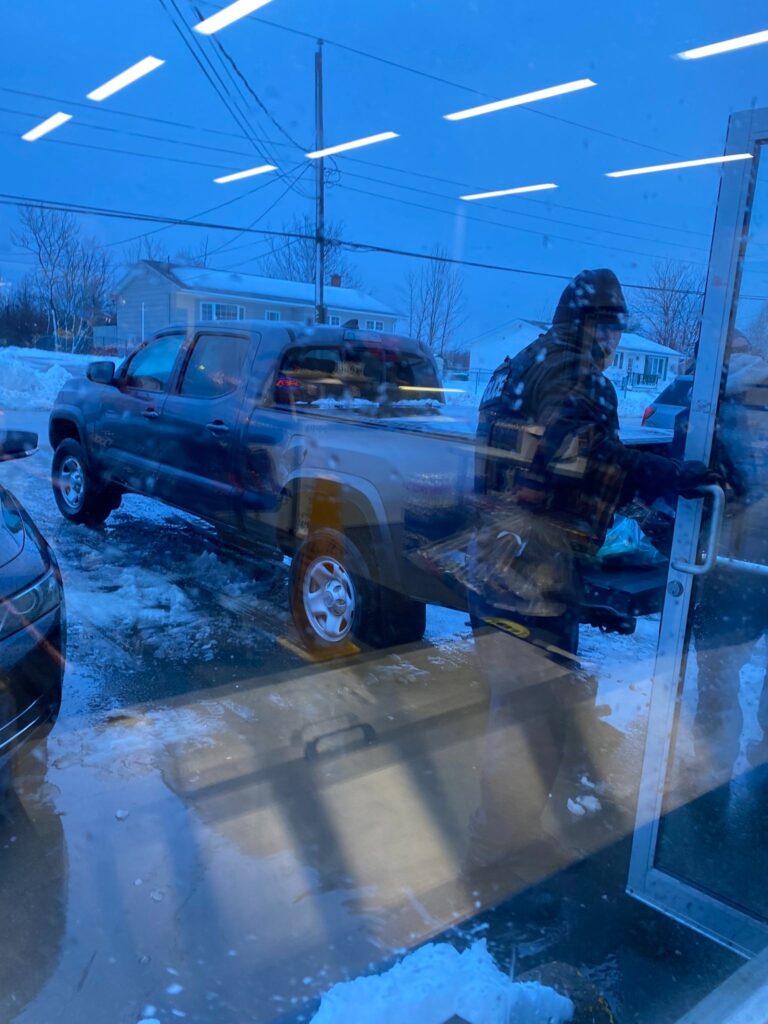

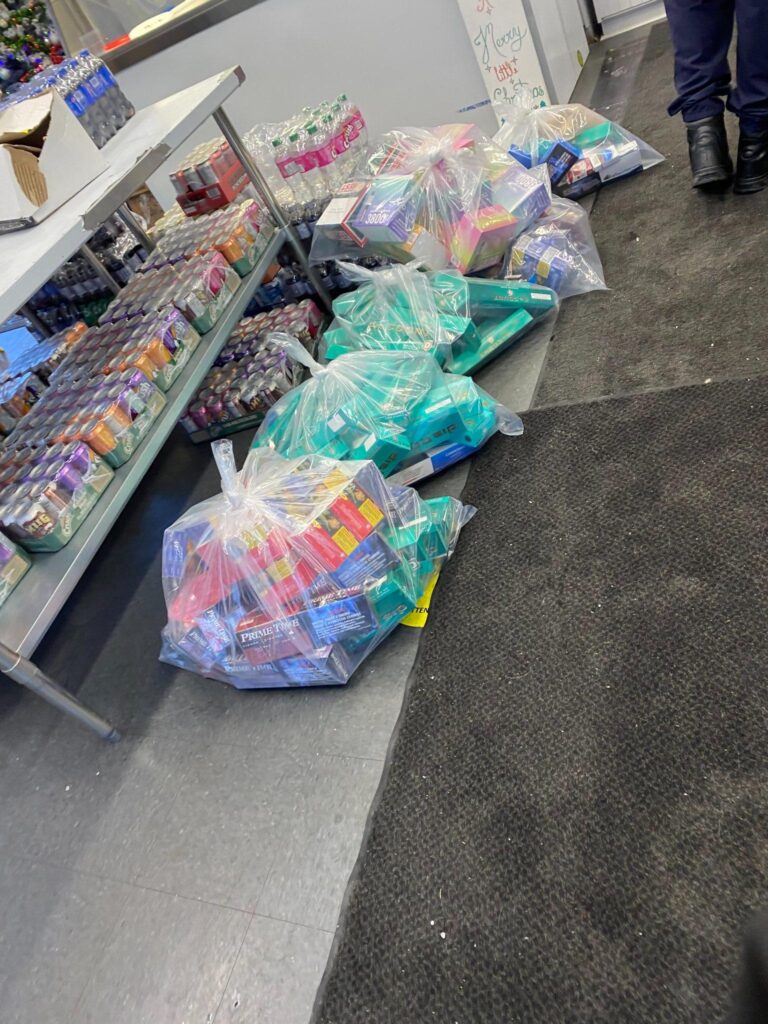


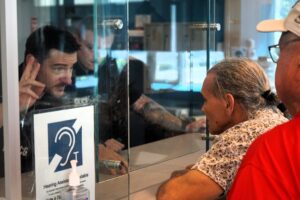
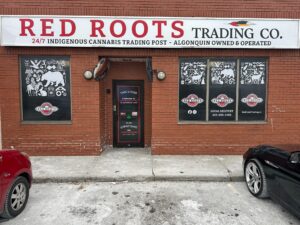





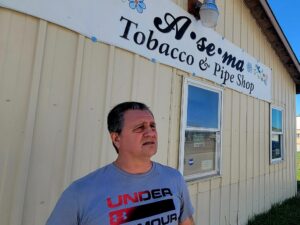
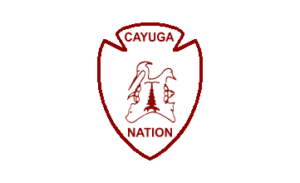

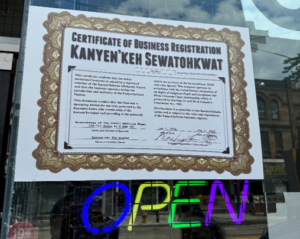



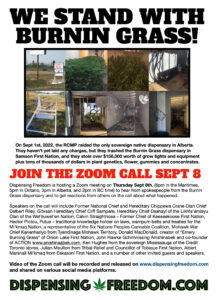
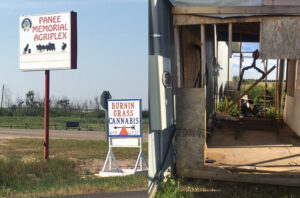
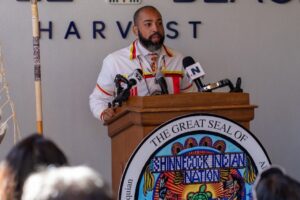

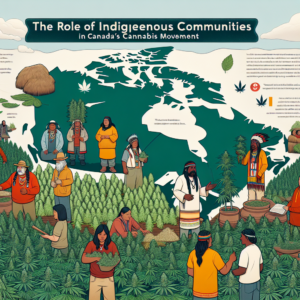


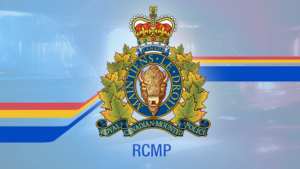
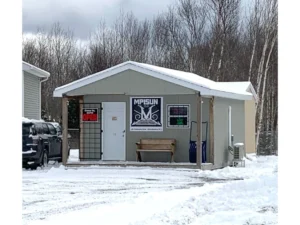
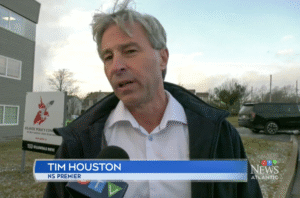


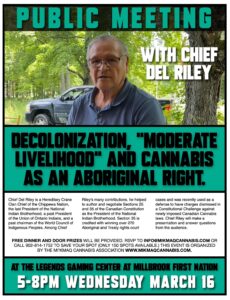


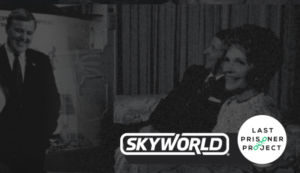
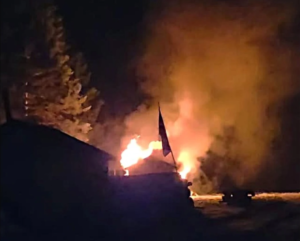

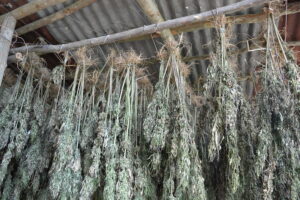
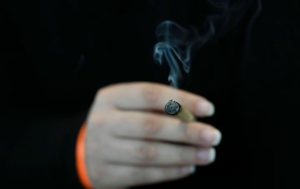
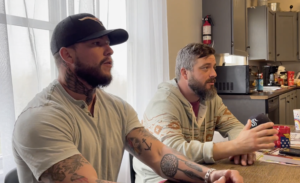
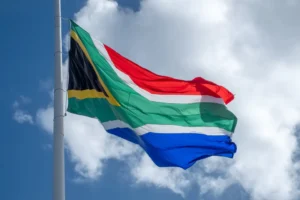



Be First to Comment